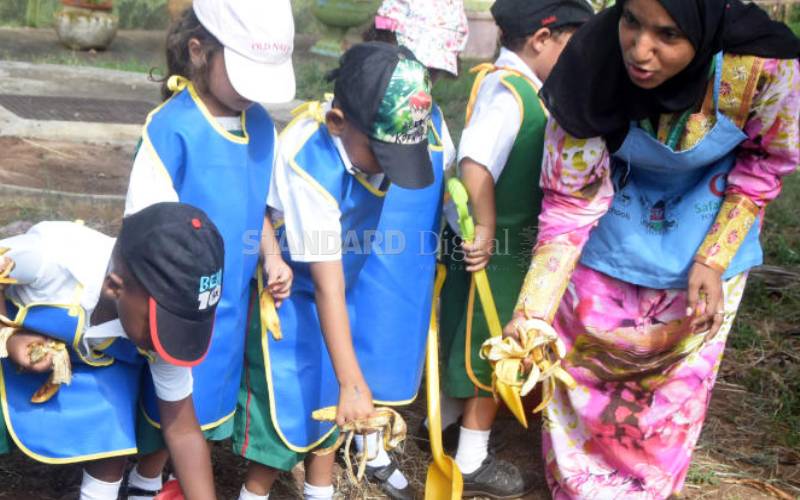
A teacher shows nursery school children (PP1) how to bury banana peels and cover them to manufacture manure. There is concern that some teachers are suggesting wrong learning activities under Competency-Based Curriculum, thus unnecessarily burdening parents. [Gideon Maundu, Standard]
When Kenya initiated implementation of the Competency-Based Curriculum (CBC) in 2017, it was clear many changes were expected in teaching, learning and assessment of learners. In what is a major departure from the rote memorisation of the content of the 8-4-4 system, CBC aims at instilling core values and practical skills and competencies to ensure every learner seamlessly transitions from the school to the work environment.